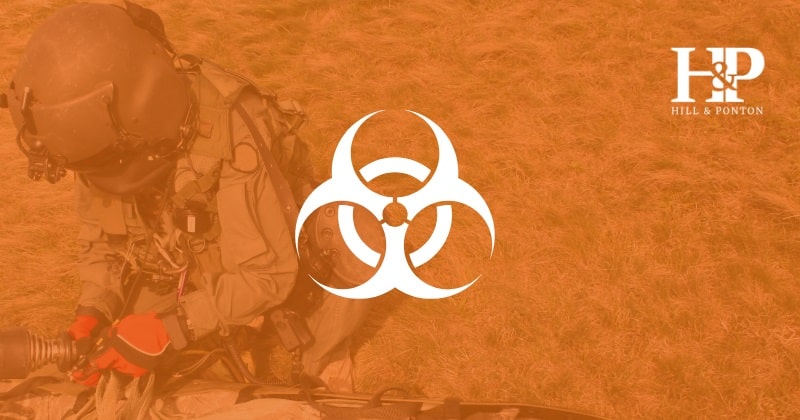Agent Orange was an herbicide utilized by the U.S. military, notably during the Vietnam War, and has left a lasting impact not only on those directly exposed but on their descendants as well.
This article discusses the effects specifically on those often termed as “Agent Orange babies” or 2nd or 3rd generations of veterans who were exposed to the herbicide.
What is Agent Orange?
During the Vietnam War, the U.S. military utilized Agent Orange, as a defoliant to clear vegetation.
It contained dioxin, one of the most toxic chemicals known to science.
Exposure to this herbicide has been linked to a plethora of serious health concerns such as cancer, neurological disorders, and birth defects in offspring.
These family members of exposed veterans are often dubbed “Agent Orange kids” or “Agent Orange babies.”
Want to learn more about Agent Orange? Click here!
So Agent Orange Effects Can Be Passed Down?
The question of whether or not Agent Orange and other herbicides harmful effects can be inherited has been a point of concern for veterans and their families.
Research over the years has strongly indicated the repercussions of exposure extend beyond the individual who was in initial contact, and may impact multiple generations.
2nd Generation Agent Orange Symptoms
Children of veterans who were directly exposed to Agent Orange during the Vietnam War have reported a variety of health issues.
These include, but are not limited to:
- Spina Bifida: A neural tube defect that results in incomplete development of the spinal cord and its casing. This condition can lead to significant physical and neurological disabilities.
- Neurological Disorders: Including learning disabilities, developmental delays and attention-deficit/hyperactivity disorder (ADHD). These issues can affect cognitive function, behavior and social interaction.
- Autoimmune Diseases: There is an increased incidence of autoimmune disease such as lupus, rheumatoid arthritis and multiple sclerosis among the 2nd generation. These conditions occur when the immune system mistakenly attacks the body’s own tissues, causing widespread inflammation and tissue damage.
- Cancer: While the direct link between specific cancers and Agent Orange exposure in the 2nd generation is still under investigation, there have been reported cases of increased risk for certain types of cancers, potentially related to the genetic impact of dioxin exposure.
3rd Generation Agent Orange Symptoms
Evidence in more recent years has shown that the effects of Agent Orange may not be limited to just children of exposed veterans, but can extend to their grandchildren (3rd generation).
There have been reports of the following conditions:
- Birth Defects: Congenital disabilities in the 3rd generation may include a broader range of conditions than 2nd generation, such as limb deformities and complex heart defects.
- Developmental Disorders: There are indications that developmental and cognitive disorders, including ones like learning disabilities and delays in reaching developmental milestones, may be more prevalent in 3rd generation Agent Orange babies.
- Reproductive Issues: Some studies have suggested an increase in fertility issues and reproductive health problems in the 3rd generation, raising some concerns about the long-term genetic impacts of Agent Orange.
The symptoms and effects of Agent Orange exposure in offspring show the need for ongoing research and support for the families that are impacted.
Understanding health challenges that both 2nd and 3rd generation Agent Orange babies face is important for providing targeted care, advocating for benefits and ensuring that the legacy of Agent Orange exposure is properly discussed and researched fully.
Did the VA Deny Your Disability Claim?
Let our team review your case today!
Get a Free Case EvaluationCassandra Crosby, an Accredited Agent and claims advocate for Matthew Hill & Shelly Mark’s teams, reviewed the information provided in this post.




